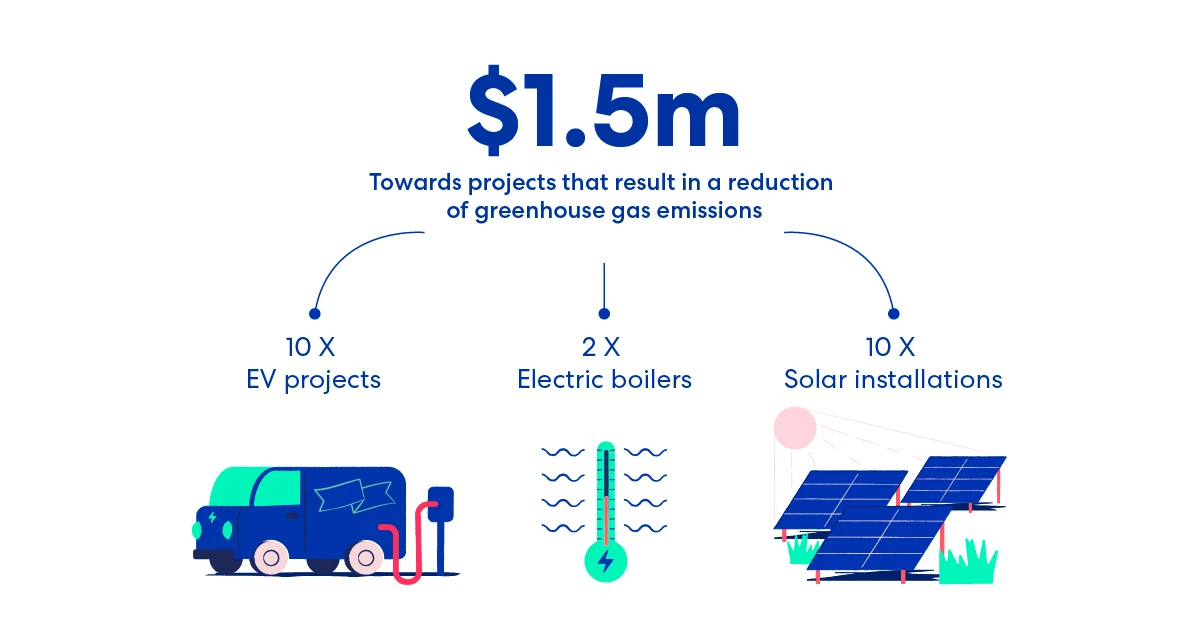Over the past two years, Meridian Energy and its Certified business customers have joined forces to contribute $1.5 million in funding to support community and business projects in reducing carbon emissions.
Climate change will not be solved by one company, one person or one community. And, as New Zealand’s largest generator of renewable electricity – all from wind, water and sun – Meridian is using its power to make a difference by helping get New Zealand to net-zero carbon emissions by 2050.
One of the many ways Meridian is working towards this is through its Decarbonisation Fund, which supports community and business projects aimed at reducing greenhouse gas emissions. Typical examples include installing solar panels or purchasing an EV.
The fund, which has distributed $1.5 million in the past two years, represents 100% of the net proceeds earned from Certified – Meridian’s certified renewable energy product – which is available to business customers.
New Zealand generally has around 85% renewable energy circulating through the grid, but there’s no way of knowing if all your electricity comes from renewable sources. That’s where Certified comes in.
It means business customers can match their electricity consumption with an equivalent amount generated by one of Meridian’s hydro stations or wind farms. Meridian then provides renewable
energy certificates, which allows customers to report their market-based Scope 2 emissions—the ones linked to electricity usage—as zero.
Businesses using renewable energy certificates like this isn’t new, but what makes Meridian’s approach stand out is that all net proceeds are reinvested to help the businesses and community groups actively reduce or prevent their carbon emissions. It’s a real win-win.
Over the past two years, Meridian’s Decarbonisation Fund has distributed $1.5 million to 22 projects across the country and counting.
This has included installing solar panels at the Kiwi House in Otorohanga, purchasing an electric vehicle for the Blue Light Youth Driver programme and switching out the diesel boiler at the North Southland Pool for an electric one.
All have helped reduce carbon emissions, but also had a positive impact on local communities by reducing the operating costs of these organisations so they can channel funds where they’re needed most.
Satisfy Food Rescue, based in Kaiapoi, is among the most recent organisations to receive funding. Its mission is to rescue good food that would otherwise go to waste and redistribute it to food banks, schools and other charitable organisations to feed those in need throughout the Canterbury region.
Satisfy Food Rescue Chair, Phillipa Hunt, says that “incorporating an EV into our fleet has been a game-changer. The EV significantly reduces our fuel and maintenance expenses, allowing us to allocate resources more effectively towards our core mission of food rescue and distribution.”
Since Satisfy received the EV van in 2024, they have managed to rescue 49% more food when compared to the last quarter of 2023.
To find out more about applying for funding for your decarbonisation project, or how your business can be part of the solution, visit: meridianenergy.co.nz/decarb
